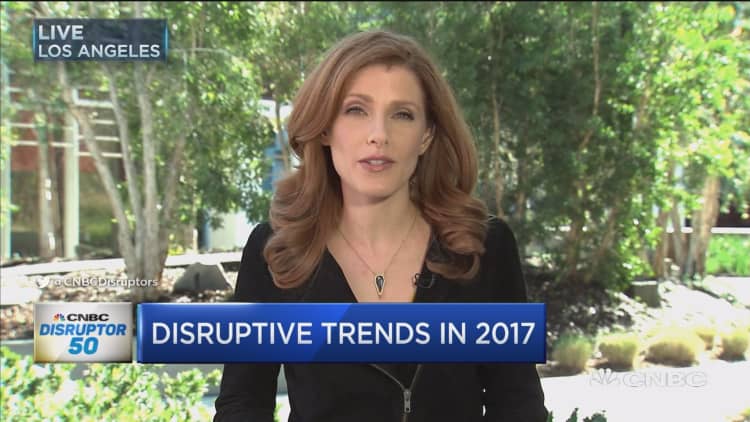
Hot sectors such as artificial intelligence, virtual reality, voice control, and self-driving cars will continue to attract investment regardless of who occupies the Oval Office. The big question for venture investors is whether and how much Trump's presidency impacts deal flow and if it makes new sectors attractive.
Revolution's Roger McNamee warns that the President's move away from globalization is bad for tech investments across the board. "The breakdown of US trading relationships around the world, which is by no means guaranteed, but is the direction that the administration is trying to take –that's incredibly bad for tech companies," says McNamee. "In my mind that means I have to be a lot more careful about private investments I make, especially in the seed stage."
Venture Capital firms raised more last year than they have in any year since 2000, but the number of first financings, or first rounds of equity funding in startups, fell to the lowest level since 2010, according to Pitchbook and the National Venture Capital Association. That trend indicates that VCs may be less willing to take a gamble on less-established companies and ideas than they have been in previous years.
FINDING DISRUPTIVE INVESTMENTS
"The most important things investors require is stability—we need a stable legal system, stable economic policy, stable government," says McNamee. "Those are the things investors in the US markets have been able to count on for two generations and I think that the election of Donald Trump makes that uncertain for the first time in my lifetime."
But even as McNamee proceeds cautiously, he's finding an opportunity in a sector he says he sees benefitting from this political administration: personal security. He's about to invest in a company that makes smart security cameras for cars. And McNamee says he'll continue to invest in virtual and augmented reality, where he already sees an established market.
In contrast, former analyst, now venture capitalist, Gene Munster, says he doesn't think the President's policies will have much impact at all on the progress that's sure to happen around four key themes: augmented reality, virtual reality, artificial intelligence, and robotics.
Far more optimistic, Lerer Hippeau's Eric Hippeau says he sees opportunities to invest in technology infrastructure. "If the administration and congress include tech as part of investment in infrastructure that could be a very big boon for the tech industry,particularly with the Internet of things,censors, more Wi-Fi, and connectivity throughout the nation."
In terms of other sectors, Hippeau is focusing on artificial intelligence,which will be adopted and incorporated by a range of companies. And he's looking for other opportunities created by the "disruption" of President Trump.
"In as much as the new administration favors less regulation, more movement in the market, that's an advantage for us as early stage investors," says Hippeau.
CASHING IN ON DISRUPTORS
As for the question of when and how investors will get their money back, investors are hoping to see a surge in public offerings following a 65% decline in IPOs from 2014 to 2016. "What we hear from our members is 2017 could be the year for liquidity and exits, and opportunities to take returns,"says NVCA president and CEO Bobby Franklin.
And there are a number of factors that could drive M&A, following a 23% decline last year in acquisitions of private venture-backed companies: President Trump is pushing companies to repatriate cash, there's the potential for more favorable tax treatment here in the US, plus a lighter regulatory environment. Franklin is advocating on behalf of his venture firms for regulatory reform to make it easier for companies to go public, by managing the cost of compliance.
Another factor that could drive deals: with the Dow trading near highs, even with Monday's pullback, there's pressure on companies to show growth.
"Now there's a real demand to see companies put up numbers on unit growth and price leverage," says McNamee. "If you don't have that, buy something really large so you can change the subject. We're already seeing that, and expect it to accelerate among large companies dramatically."






